home > Insights from FWB > The Compleat Writer
 When F. W. Boreham developed his literary friendship while pastoring in Mosgiel with the Rev. John Broadbanks he conveniently met with him in the idyllic nearby town of Silverstream. Years later after he had bid farewell to his illusive friend with his book, The Passing Of John Broadbanks, he tucked a seemingly unrelated essay into the pages of his 1948, Cliffs of Opal, entitled By Silver Streams. In this essay, typically penned years earlier before being pressed by Epworth, Boreham pays tribute to a forgotten giant, Izaak Walton. After reading this tribute to Mr. Walton, it becomes clearer to the reader just how compleatly influential Izaak Walton was to F.W. Boreham.
When F. W. Boreham developed his literary friendship while pastoring in Mosgiel with the Rev. John Broadbanks he conveniently met with him in the idyllic nearby town of Silverstream. Years later after he had bid farewell to his illusive friend with his book, The Passing Of John Broadbanks, he tucked a seemingly unrelated essay into the pages of his 1948, Cliffs of Opal, entitled By Silver Streams. In this essay, typically penned years earlier before being pressed by Epworth, Boreham pays tribute to a forgotten giant, Izaak Walton. After reading this tribute to Mr. Walton, it becomes clearer to the reader just how compleatly influential Izaak Walton was to F.W. Boreham.
THE POWER OF GREAT WRITING
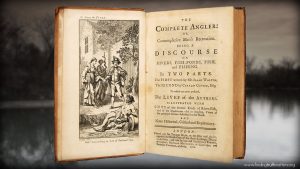 I had read of Boreham’s passing praise in his earlier books of The Compleat Angler. But due to my near complete disinterest in fishing, I have not been enticed to acquire or read this book. But in reading Cliffs of Opal, and its essay, By Silver Streams, Dr. Boreham scolded me for my ignorance and let me know in no uncertain terms that the Compleat Angler was not only a manual for life but a script for dealing with unimaginable crises.
I had read of Boreham’s passing praise in his earlier books of The Compleat Angler. But due to my near complete disinterest in fishing, I have not been enticed to acquire or read this book. But in reading Cliffs of Opal, and its essay, By Silver Streams, Dr. Boreham scolded me for my ignorance and let me know in no uncertain terms that the Compleat Angler was not only a manual for life but a script for dealing with unimaginable crises.
I once spent a day or two among old Izaak’s riverside nooks and leafy haunts, but I found that the experience added only slightly to the delectation that ‘The Compleat Angler’ had already brought to me.
F.W. Boreham, “Cliffs of Opal”, ‘By Silver Streams’, pg. 149
Izaak Walton (1593-1683), Boreham tells us, “lived through the most turbulent years of British history” (p. 153). He lived during the time of Queen Elizabeth, King James I, the rebellion and execution of King Charles I, the dissolution of Parliament, and the restoration of the Crown. Much blood was being shed across England as Izaak conducted his Fleet Street hardware business. For the first 44 years of his life Walton worked tirelessly taking little to no time for leisure stopping only to bury each of his seven children and then his beloved wife. His parents had died when he was young enough to be considered an orphan. We are not told who raised him to be a wordsmith, a philologist, and a lover of God. Some biographers speculate that it was a nurse, others have suggested that it was a clerical benefactor. Either way, the world was introduced to Izaak Walton as an ironmonger, as his marriage certificate tells, who was entered into the Register of the Ironmongers’ Company in 1618. Yet he was not your average hardware merchant. Poets sought him out for his editor’s eye. He had been penning verse himself for which he had gained a following.
By the time that he was well into his forties he saw that he could slacken off a little; so, taking a quill he devoted his attention to literature. In 1640, at the age of forty-seven, he published his life of Dr. Donne – a book which Dr. Johnson, reading it more than a century afterwards, considered a masterly performance – and, three years later, at the age of fifty, he closed his shop for ever.
(p. 152)
While England was tearing itself apart, Walton wrote the biography of one of its greatest statesmen preachers, Dr. Donne, who had been Izaak’s pastor and mentor. It was a sermonic biography which told Dr. Donne’s story with excerpts from Dr. Donne’s sermons interwoven throughout it. Walton seems to have believed that a sermon could be preached through a story. It is easy to see just how much this influenced Boreham’s own style. Up until this point in Walton’s life, “There is no evidence that the handled a fishing-rod or hankered after trout-streams and millponds until his hair had begun to turn grey.” (p. 152)
“Those who cling to the superstition that, in retiring from business, a man virtually orders his coffin, should pay some attention to the illustrious record of Izaak Walton. He gave up business when he was fifty; he lived to be ninety-one, and it was during the forty-one years of his retirement that he made his name immortal.”
F.W. Boreham, “Cliffs of Opal”, ‘By Silver Streams’, 1948, p. 153
THE COMPLEAT ANGLER IS BORN
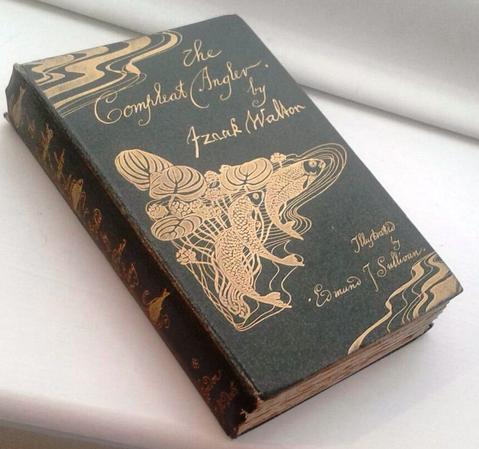 I have already confessed my pitiful ignorance about what The Compleat Angler is about. Dr. Boreham’s grandfatherly castigation of my pitiful state was sealed by him stating, “The book may have a special interest for fishermen; I do not know. Dr. R. B. Marston says that, having read everything ever written on the angler’s craft, he learned more about the haunts and habits of British fish from Izaak than from all the other writers put together. That is at it may be. I only know, and know for certain, that, for one such admirer, it would be easy to find a score who love walton and his book without being anglers” (p. 150). Understanding that Izaak Walton penned this book at a time when “the streets of Worcester, not far away, were choked with slaughter” (p. 153) makes this book all the more remarkable!
I have already confessed my pitiful ignorance about what The Compleat Angler is about. Dr. Boreham’s grandfatherly castigation of my pitiful state was sealed by him stating, “The book may have a special interest for fishermen; I do not know. Dr. R. B. Marston says that, having read everything ever written on the angler’s craft, he learned more about the haunts and habits of British fish from Izaak than from all the other writers put together. That is at it may be. I only know, and know for certain, that, for one such admirer, it would be easy to find a score who love walton and his book without being anglers” (p. 150). Understanding that Izaak Walton penned this book at a time when “the streets of Worcester, not far away, were choked with slaughter” (p. 153) makes this book all the more remarkable!
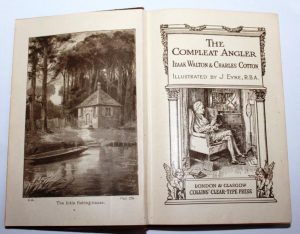 Boreham himself probably penned this essay during the height of World War II. (If anyone has a World War II period journal, newspaper, or Christian magazine, in which this essay appears, I would love to hear from you.) No doubt drawing great inspiration from Walton’s method of not getting caught up in such temporal affairs like revolutions and wars, Boreham wrote about things of eternity, infinities, and immensities, during World War II. For this, he was sorely criticised.
Boreham himself probably penned this essay during the height of World War II. (If anyone has a World War II period journal, newspaper, or Christian magazine, in which this essay appears, I would love to hear from you.) No doubt drawing great inspiration from Walton’s method of not getting caught up in such temporal affairs like revolutions and wars, Boreham wrote about things of eternity, infinities, and immensities, during World War II. For this, he was sorely criticised.
“Yet, though England was a cloud of dust, not a speck or a smut was permitted to settle upon his pages.”
F.W. Boreham, “Cliffs of Opal”, ‘By Silver Streams’, 1948, p. 153
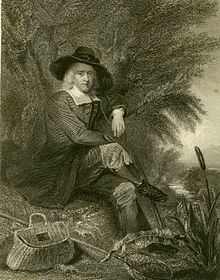 The Compleat Angler is almost a metaphor for how Boreham eventually modelled his own writing. Wrapped in stories, facts, anecdotes about things almost mundane, such as fish, Izaak Walton wove the Gospel through it in such a subtle way that perhaps only a fisherman could. He drew analogies from the art of fishing for trout such as where the angler must always have the sun at their face rather than their back so that their shadow does not fright the fish away, with how the Gospel can be most effectively shared by ‘fishers of men’. “In a modest way Izaak was very much a philosopher. He had no desire for wealth, but made that most of what he had and derived an immense amount of satisfaction from what he had not…” (p. 151).
The Compleat Angler is almost a metaphor for how Boreham eventually modelled his own writing. Wrapped in stories, facts, anecdotes about things almost mundane, such as fish, Izaak Walton wove the Gospel through it in such a subtle way that perhaps only a fisherman could. He drew analogies from the art of fishing for trout such as where the angler must always have the sun at their face rather than their back so that their shadow does not fright the fish away, with how the Gospel can be most effectively shared by ‘fishers of men’. “In a modest way Izaak was very much a philosopher. He had no desire for wealth, but made that most of what he had and derived an immense amount of satisfaction from what he had not…” (p. 151).
Izaak Walton wrote in The Compleat Angler, “The three things most to be desired are a good conscience, a reasonable measure of health, and a modest competence. If you have these, enjoy them with gladness and gratitude, for God has two dwellings, one in heaven and one in a meek and contrite and thankful heart, which God Almighty ever grant me!” (Boreham, p.152)
“This represents,” writes Dr. Boreham, “in a nutshell, the condensed essence of Izaak Walton’s book and the condensed essence of Izaak Walton’s long lovely life.” And a long life it was. Far from ‘virtually ordering his coffin’ Izaak Walton lived to the age of 91 and at the age of 85 gave his last book to the publisher for printing! Similarly, FWB was told by J.T. Soundy of Hobart to write down all his ideas before he reached the age of 40, because after that he would have no good ideas! Just as Izaak Walton’s most productive years began at the age of 50, when FWB retired at the age of 57 he lamented that many of friends and even siblings had already passed into eternity, he felt that his best years were behind him and his days ahead may be few. But history dealt him another verdict. Boreham actually arguably entered into his most productive season and was in more demand than ever before around the world as a preacher and a writer (undertaking two world preaching tours, 1928 and 1936). When his son, Frank, drove his 88 year old father to the hospital for what they thought would be a short stay to treat a chest infection, he gave his son a shoebox stuffed with unpublished articles that his father had written (which were published in the Melbourne Age’s Saturday Literary Feature for the next nine months!). But FWB’s stay was shorter than anyone anticipated. On Monday, May 18, 1959, Frank William Boreham, O.B.E., D.D., ended his pilgrimage and his navigation across strange seas. What he wrote of Izaak Walton could well be applied to him-
“Izaak Walton was a good man, if ever there was one. We ministers like to remind ourselves that he was essentially a minister’s man. He was never so happy as when he found himself in fond familiar converse with one or other of his clerical friends.”
F.W. Boreham, “Cliffs of Opal”, ‘By Silver Streams’, 1948, pages 148-149
Andrew Corbett
Listen to how F.W. Boreham’s essay on Izaak Walton was recently preached –


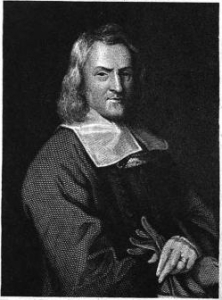
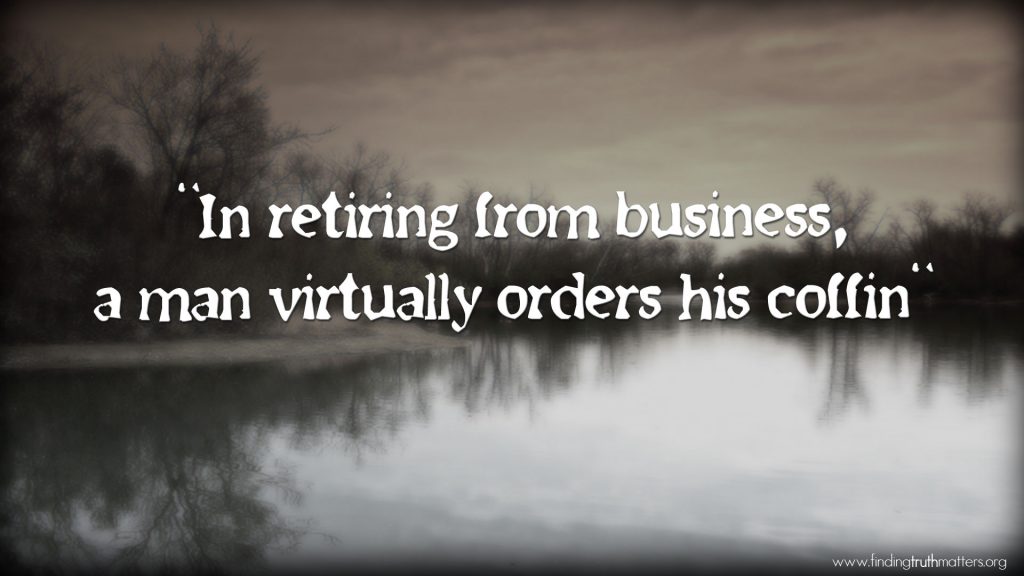
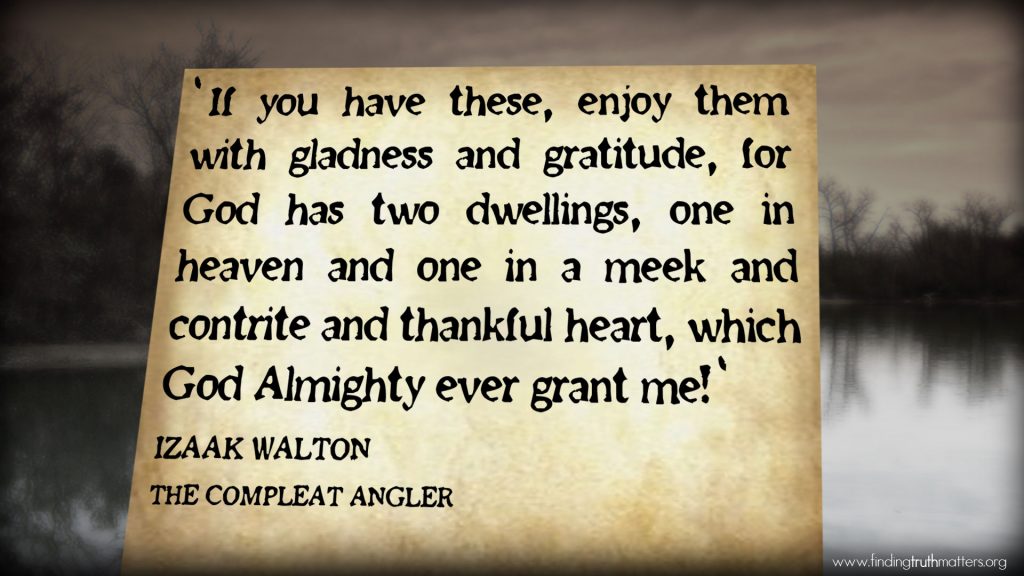
















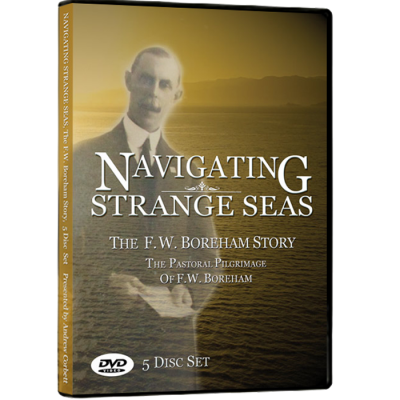
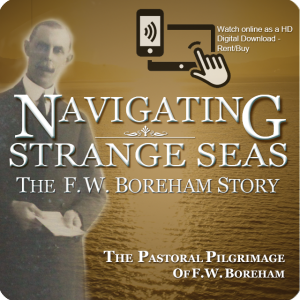
woooow thanx for the message , needed it today
Thank you Beth! You are one of the most encouraging members of the FWB community! Blessings! -AC.